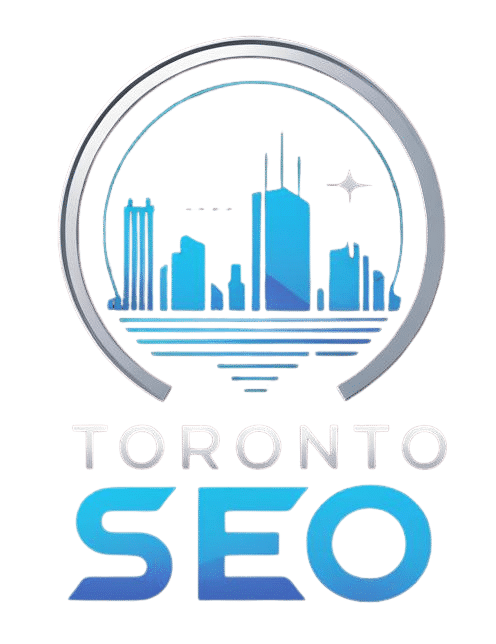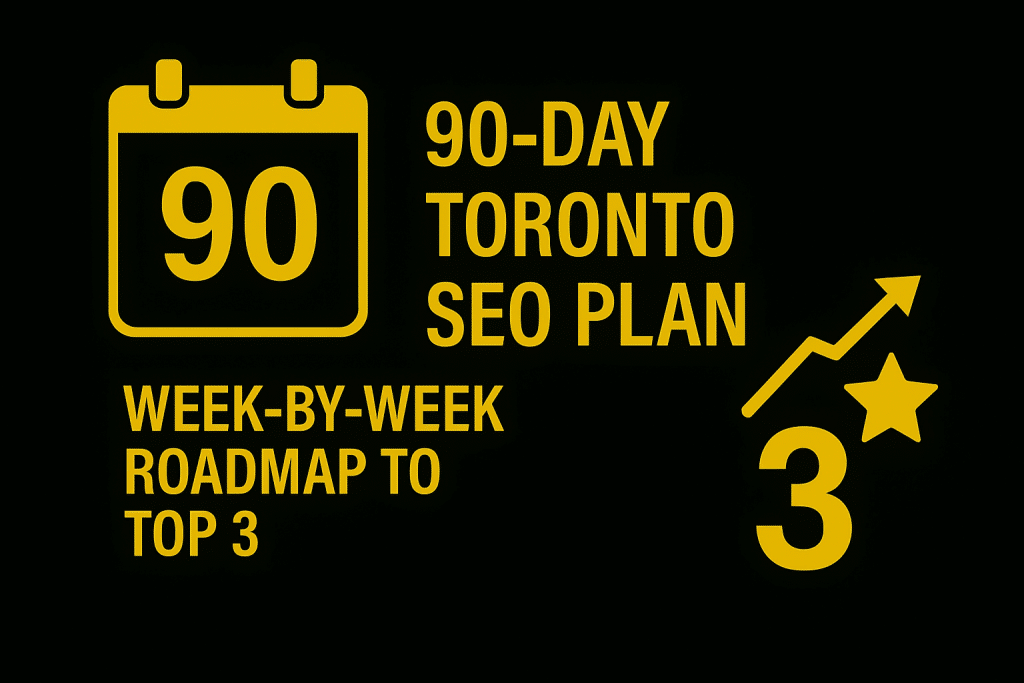Toronto is one of the most competitive SEO markets in North America. To break into the Top 3 Google rankings within just 90 days, your strategy must be precise, structured, and aggressively executed. This comprehensive roadmap lays out a week-by-week Toronto SEO plan that blends technical optimization, content authority building, and local dominance—tailored specifically for Toronto’s search landscape.
Why a Structured 90-Day SEO Plan Works in Toronto
Toronto’s digital market is flooded with agencies and brands targeting the same high-intent keywords. Without a time-boxed SEO strategy, businesses often spread their efforts too thin and see minimal traction. A 90-day roadmap brings focus, ensuring your site builds authority in stages—technical readiness first, then content authority, followed by link equity and local dominance.
Leading Toronto agencies use similar structured sprints to move from invisibility to first-page rankings quickly. As noted in Top SEO Agencies in Toronto Are Using AI to Outrank the Competition, systematic execution paired with AI tools accelerates results significantly.
Phase 1: Technical Foundation (Weeks 1–3)
Before any content or backlinking happens, your website must be technically flawless. Technical debt can cripple all subsequent SEO efforts.
Week 1: Comprehensive SEO Audit & Baseline Setup
Run a full technical SEO audit using tools like Screaming Frog, Ahrefs, or Google Search Console.
Fix crawl errors, redirect chains, 404 pages, and orphaned content.
Benchmark current rankings for target keywords and competitors using a rank tracker.
Submit updated sitemaps to Google Search Console.
Key Deliverables:
Clean, crawlable site structure
Updated robots.txt and sitemap.xml
Indexed core service pages
Baseline keyword and traffic reports
💡 Internal Resource: Use this Toronto SEO Audit Checklist to ensure nothing is missed.
Week 2: Core Web Vitals & Speed Optimization
Toronto users expect fast-loading, mobile-friendly sites. Google’s Core Web Vitals are major ranking factors. Focus on:
Improving Largest Contentful Paint (LCP) to under 2.5 seconds.
Minimizing CLS (Cumulative Layout Shift).
Implementing image compression, lazy loading, and CDN.
Upgrading hosting if TTFB is consistently high.
For guidance, see Core Web Vitals Toronto and Google’s Core Web Vitals documentation (external).
Week 3: On-Page SEO & Site Architecture
With speed and indexing optimized, turn to on-page SEO:
Optimize title tags, meta descriptions, and headers for primary Toronto keywords.
Implement content silos for clear topical authority (e.g., /services/seo/, /blog/seo-tips/).
Add internal linking to pass authority between high-value pages.
Structure location pages for multi-location SEO in the GTA.
Internal Resource: Content Silos Toronto explains how to create SEO-friendly architecture for service-based businesses.
Phase 2: Content Authority (Weeks 4–7)
Once the technical foundation is set, content becomes the engine that drives rankings. In Toronto’s SEO landscape, high-quality localized content is the differentiator.

Week 4: Keyword Research & Editorial Calendar
Conduct Toronto-specific keyword research based on intent:
Service intent: “SEO company Toronto”
Local intent: “SEO near me Toronto”
Informational intent: “How much does SEO cost in Toronto 2025”
Map keywords to specific pages and blog posts.
Build a 90-day editorial calendar targeting short-tail and long-tail keywords.
📌 Internal Resource: Toronto Keyword Research: Intent First offers a full framework for intent-driven content planning.
Week 5–6: Authority Content Creation
Publish 2–3 high-quality blog posts per week that target clusters of related keywords. Example content themes:
“Toronto Local SEO Playbook” targeting SMB owners.
“Content Optimization: Boosting Engagement and Rankings” for marketing managers.
“Google Business Profile Toronto Optimization Guide” for local service businesses.
Follow E-E-A-T principles to establish trust. Include internal links to cornerstone pages and external references to authoritative sites like Canada.ca (external) for regulatory or business references.
Week 7: Content Optimization & Engagement Boost
Before moving into link building, optimize published content:
Interlink related blog posts and service pages.
Add schema markup (FAQ, HowTo, LocalBusiness).
Optimize for featured snippets and People Also Ask boxes.
Add custom CTAs to drive conversions.
Relevant internal content like Content Optimization: Boosting Engagement and Rankings can help shape your engagement strategy.
Phase 3: Backlinks, Local SEO & Authority Push (Weeks 8–12)
Now that Google can crawl and understand your site and you’ve published targeted content, it’s time to push authority.
Week 8: High-Authority Link Building
Use digital PR strategies, local sponsorships, and non-guest-post link acquisition methods.
Earn citations and mentions from Toronto business directories.
Submit your site to reputable Canadian business listings and local chambers.
See How Toronto SEO Agencies Build High-Authority Backlinks Without Guest Posting for strategies that work in competitive niches.
Week 9: Google Business Profile & Citation Optimization
Local visibility is crucial. Optimize your Google Business Profile:
Add high-quality photos, service categories, and regular updates.
Encourage clients to leave reviews weekly.
Ensure NAP (Name, Address, Phone) consistency across citations.
Leverage Local SEO Tips for Toronto Businesses to rank in the coveted Google 3-Pack.
Week 10–11: Outreach Campaigns & Brand Mentions
Toronto’s competitive SERPs require brand authority. Use these weeks to:
Partner with local influencers, business associations, and podcasts.
Pitch thought leadership content to Toronto media outlets.
Get featured on roundups of top Toronto agencies and resources.
Internal Resource: PR vs SEO in Toronto: How Leading Agencies Combine Both for Top Rankings provides an excellent model.
Week 12: Analytics, Adjustments & Conversion Optimization
The final sprint focuses on measuring and refining:
Compare current rankings with baseline data.
Identify content pieces with ranking potential stuck on page 2 and refresh them.
Use Google Analytics and GSC data to optimize conversion funnels.
A/B test CTAs, forms, and page layouts.
For tracking frameworks, refer to How to Track SEO Performance with Analytics.
Key Takeaways of the 90-Day SEO Sprint
Weeks 1–3: Build a technically sound, fast, crawlable site.
Weeks 4–7: Establish topical authority with intent-driven, optimized content.
Weeks 8–12: Build backlinks, local citations, and brand authority while monitoring results.
This 90-day SEO roadmap isn’t just theory—it’s the same structured framework used by top Toronto SEO firms to move clients into the top 3 organic positions.
Start Your Toronto SEO Plan Today
A clear roadmap transforms SEO from guesswork into a growth engine. Whether you’re an in-house marketer or evaluating Hiring a Toronto SEO Expert vs Doing It In-House, the next 90 days can redefine your online visibility.
📞 Contact Toronto SEO today to get a customized 90-day SEO strategy tailored to your business goals.


